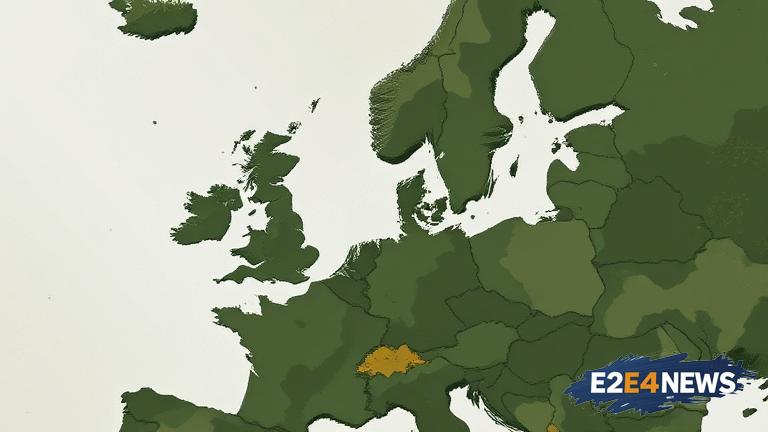The European Union’s military capabilities have been found to be lacking, with many member states failing to meet the defense spending targets set by the North Atlantic Treaty Organization (NATO). According to a report by the European Commission, the EU’s military expenditure has been steadily decreasing over the past decade, with only a few member states meeting the NATO target of spending at least 2% of their GDP on defense. This has sparked concerns among defense experts and policymakers, who warn that the EU’s military capabilities are being eroded at a time when the security landscape is becoming increasingly complex and unpredictable. The report highlights that the EU’s military spending has been declining since 2010, with the average defense expenditure of EU member states standing at around 1.3% of GDP. This is significantly lower than the NATO target, which was agreed upon by member states in 2014. The report also notes that only a handful of EU member states, including Estonia, Greece, and the United Kingdom, are meeting the NATO target. Other member states, such as Germany and France, are falling short of the target, despite being among the largest economies in the EU. The decline in military spending has been attributed to a combination of factors, including the economic crisis, budget cuts, and a lack of political will to prioritize defense spending. The report warns that the EU’s military capabilities are being compromised as a result, with many member states struggling to maintain their military equipment, personnel, and training. This has significant implications for the EU’s ability to respond to emerging security threats, including terrorism, cyber attacks, and hybrid warfare. The report calls on EU member states to increase their defense spending and to prioritize investments in military modernization, research and development, and personnel training. It also emphasizes the need for greater cooperation and coordination among EU member states on defense issues, including the development of a common defense policy and the creation of a European Defense Fund. The European Commission has pledged to support EU member states in their efforts to increase their defense spending and to develop their military capabilities. However, defense experts warn that it will take time and effort to reverse the decline in military spending and to build up the EU’s military capabilities. They also note that the EU faces significant challenges in its efforts to develop a common defense policy, including the need to balance the interests of different member states and to address the complexities of EU decision-making. Despite these challenges, the report concludes that it is essential for the EU to prioritize its military capabilities and to work towards meeting the NATO target. This will require a sustained effort from EU member states, as well as a commitment to greater cooperation and coordination on defense issues. The report’s findings have significant implications for the EU’s security and defense policy, and highlight the need for a more comprehensive and coordinated approach to defense spending and military modernization. The EU’s military capabilities are critical to its ability to respond to emerging security threats, and it is essential that member states prioritize investments in defense spending and military modernization. The report’s conclusions are likely to be debated by policymakers and defense experts in the coming months, and will inform the development of the EU’s security and defense policy. The EU’s ability to respond to emerging security threats will depend on its ability to develop a common defense policy and to prioritize investments in military modernization and defense spending. The report’s findings highlight the need for greater cooperation and coordination among EU member states on defense issues, and emphasize the importance of meeting the NATO target. The EU’s military capabilities are essential to its security and prosperity, and it is essential that member states prioritize investments in defense spending and military modernization.





